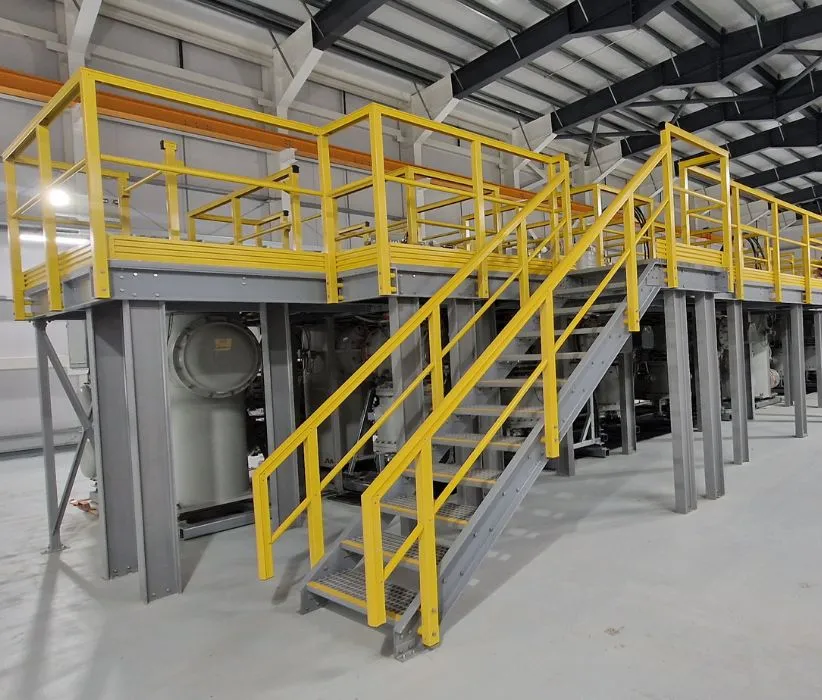loading...
- No. 9, Xingyuan South Street, Dongwaihuan Road, Zaoqiang County, Hengshui, Hebei, China
- admin@zjcomposites.com
- +86 15097380338
- Welcome to visit our website!
water treatment systems
Water Treatment Systems Ensuring Clean and Safe Water for All
Water is an essential resource for human survival and well-being. However, the quality of water can often be compromised due to various factors, including industrial discharge, agricultural runoff, and urban pollution. To combat these issues, efficient water treatment systems are vital for ensuring that the water we consume and use is safe and clean. This article delves into the importance of water treatment systems, the different types available, and the technologies making waves in the industry.
Importance of Water Treatment Systems
The primary goal of water treatment systems is to remove contaminants and impurities from water to make it suitable for various uses, including drinking, irrigation, and industrial processes. Untreated water can pose serious health risks, including waterborne diseases caused by pathogens such as bacteria, viruses, and parasites. Additionally, chemical contaminants from industrial processes can lead to chronic health issues and environmental degradation.
Effective water treatment not only protects public health but also conserves natural resources. By purifying water, we can reduce the need for bottled water, decrease the burden on freshwater sources, and promote sustainable practices. Furthermore, treated wastewater can be reused for irrigation and industrial applications, contributing to a circular economy.
Types of Water Treatment Systems
Water treatment systems can be broadly categorized into several types, including
1. Physical Treatment This method involves the removal of large particles and sediments from water through processes like sedimentation and filtration. Physical treatments are usually the first step in the water treatment process. 2. Chemical Treatment Chemicals such as chlorine, ozone, or coagulants are added to water to eliminate pathogens and other contaminants. Chemical treatment is effective in disinfection and making water safe for consumption.
3. Biological Treatment This involves using microorganisms to break down organic matter and pollutants in water. Biological treatment is commonly used in wastewater treatment plants to process sewage before it is released back into the environment.
4. Membrane Filtration Advanced techniques like reverse osmosis utilize selective permeable membranes to filter out impurities, including salts and small contaminants, making it one of the most effective methods in producing high-quality water.
water treatment systems

5. UV Treatment Ultraviolet (UV) light is employed to disinfect water by destroying the DNA of microorganisms, rendering them harmless. This technology is increasingly popular for its effectiveness without the use of harmful chemicals.
Innovative Technologies in Water Treatment
The field of water treatment is evolving rapidly, with innovative technologies enhancing the effectiveness and efficiency of water systems. Some noteworthy advancements include
- Smart Water Systems Utilizing Internet of Things (IoT) technology, smart water systems allow for real-time monitoring of water quality and system performance. These systems can automatically adjust treatment processes based on detected contamination levels.
- Nanotechnology Nanomaterials are being developed to improve filtration and removal of pollutants at a molecular level. This technology promises higher efficiency and lower operating costs.
- Decentralized Treatment Systems These systems treat water on-site, reducing the need for extensive pipeline infrastructure. They are particularly beneficial in rural or underserved communities, where access to centralized water treatment may be limited.
- Green Technologies Eco-friendly solutions, such as constructed wetlands and biofiltration, are being integrated into water treatment systems to promote sustainability. These methods use natural processes to purify water while enhancing biodiversity.
Conclusion
In conclusion, water treatment systems play a crucial role in safeguarding public health and the environment. As the global demand for water continues to rise and challenges such as pollution and climate change become more pronounced, investing in advanced water treatment technologies is imperative. By embracing innovation and sustainable practices, we can ensure access to clean and safe water for all, paving the way for a healthier and more resilient future.
-
Revolutionary Modular Handrail Systems Redefine Safety StandardsNewsMay.15,2025
-
Innovative Water Treatment Technologies for Purer WaterNewsMay.15,2025
-
Innovative Square Water Tank SystemsNewsMay.15,2025
-
Innovative Galvanized Steel Water TanksNewsMay.15,2025
-
Innovative FRP Grating Products Revolutionize Industrial FlooringNewsMay.15,2025
-
Fiberglass Storage Tanks for Reliable Water SolutionsNewsMay.15,2025
-
The Benefits and Uses of Covered Grating SolutionsNewsMay.12,2025
